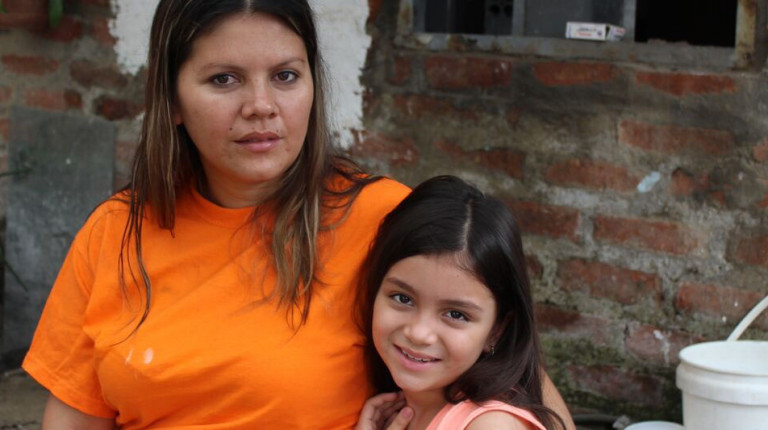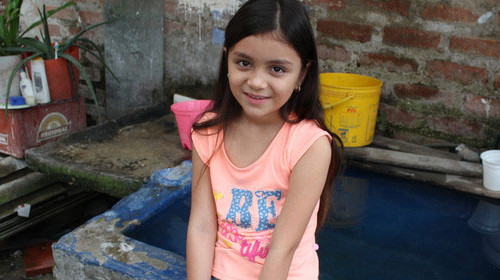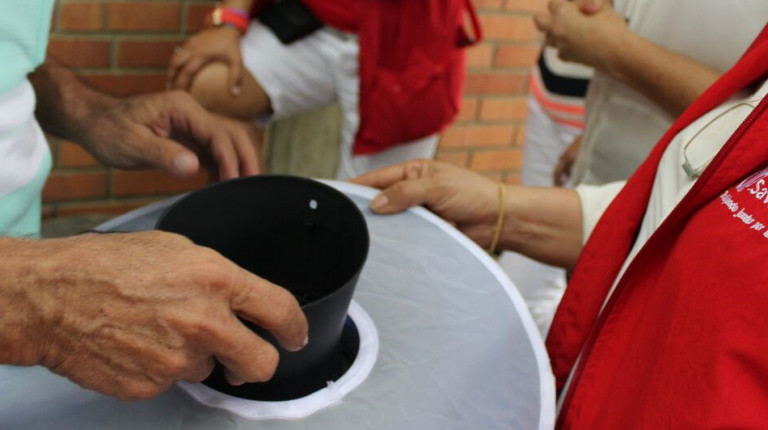In a modest house in Cúcuta, a Colombian border town next to Venezuela, we meet Katherine and her daughter Sharick, who is eight years old..
The family were forced to move to Cúcuta when the Venezuelan government closed the border in August 2015. They lost all of their belongings, “We had to leave all our things behind. We came here to live because they would not sell us any food, anything… Coming here was horrible because it is very hard to work your whole life and having to leave it all behind— your house, your things… and the next day you wake up with nothing to wear, not even a toothbrush.”
Katherine is pregnant with her second child. However, what should be a reason for joy has quickly turned to fear as Katherine discovered she has been infected by the Zika virus. Her daughter Sharick has also been infected by the virus, as well as having what the doctors suspect to be a case of Guillain-Barré, a debilitating disease which causes temporary paralysis.
Sharick explains, “I couldn’t feel my feet. I couldn’t get up. They had to lift me up to take a chichí (urinate) because I couldn’t. Neither could I sit up. Now my head hurts a lot. That is why I almost never play at school, but rather sit and talk with my friend.”
Sharick sorely misses her father, who has gone to a larger city in Colombia to find work and send money back home to his family, “I draw a little line every day my father is not here so the days may pass faster. I’m on 26 little lines but I really want my little brother to be born.” She is excited about her baby brother, but her mother does not share her optimism...
“I am quite worried; I am frightened every time I go to get checked. I am terrified when I think of how the child might be born, I am too frightened about how my child might be, because I’ve been told that some children are born normal but when they grow they can no longer fend for themselves.”
Cúcuta has one of the highest rates of Zika within Colombia, accounting for 11% of all cases nationwide. This is largely due to the poverty within the area, as many families don’t have the money to store their drinking and cleaning water in protected areas – creating breeding grounds for the Aedes mosquito.
We are working within Cúcuta to raise awareness of the Zika virus and how it is spread, helping families protect their sources of water and prevent mosquito breeding grounds. We have set up traps for mosquitos within schools, helping keep over 10,000 children safe during the day – the time when the mosquito is most active.
Our work also focuses on raising awareness on sexual and reproductive health and teaching comprehensive sex education, as well as advocating for improved access to contraception, condoms for disease prevention, and emergency contraception to reduce the number of unintended pregnancies within the community.
For mothers like Katherine we will also provide support, to ensure that her baby boy is given the support he needs.




